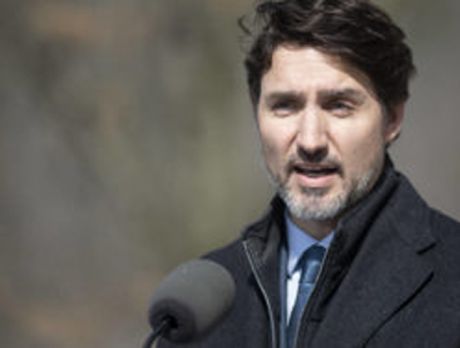Reports
You are here
Bail out workers - not big business

March 31, 2020
As the crisis of capitalism in Canada intensifies under the Covid-19 pandemic, the mass of workers under capitalism are yet again, found at an organizational disadvantage, compared to their class enemies. At a time when even many left, centrist and liberal segments of our population are considering the temporary suspension of capitalism as we know it, capitalists are using this as an opportunity to sink their claws ever deeper into their already illegitimate grip on power. The federal government bailout is a prime example.
The bailout takes the form of $82 billion in total (1% of the GDP), with $27 Billion in direct support and $55 billion for businesses. Meanwhile, oil and gas business CEOs in Alberta have penned a rather shamelessly opportunistic letter to Trudeau, that in some places, resembles a ransom letter and it ought to be regarded as such. The Globe and Mail points out that the letter includes demands to suspend the federal carbon tax, along with a demand for no interest loans and a suspension of income tax.
The letter also reads, “Our companies represent over a 100,000 Canadian workers”. This is a sinister combination of desperation and self-righteousness. One would have to work hard to not recognize the threatening tone of these demands and what this would mean for the both the environment and the increasing inequality. What’s really being said is that if the income tax isn’t squashed and their demands not met, things won’t be very good for the 100,000 workers.
The US government has already adopted the logic of these lobbying efforts, by, unsurprisingly, getting rid of all environmental regulations for now. This shows what socialists have been asserting forever, which is that a small group of people at the top make decisions that the mass of people have to live with and have no say in. It is an anti-democratic system.
The likely amount of the oil industry bailout will be around $15 Billion.
For workers there is Temporary Income Support and Employment Insurance, for which there have been over 900,000 applications already, that’s going to take effect in April. This has to be seen as bread crumbs for the working class for these measures are barely enough to keep workers afloat. The standard one week waiting period has been eliminated for workers in quarantine seeking EI health benefits, however, these measures have not been extended to Canadian workers who are underemployed. The details of the funding for public bailout programs as reported by Bruce Smith of The Toronto Star is the following: $5 billion for unemployed workers who are not eligible for EI, $2 billion for Canada Child Payment Benefits, $10 billion for emergency childcare (bi-weekly amount of $900 for 15 weeks), extension of tax filing date to June 1, 75% wage subsidy for small businesses and greater leeway to lenders to defer mortgage payments.
The measures being taken by the federal government to bail out the mass of people are significantly smaller than the measures being taken to bailout the capitalist enterprises. One has to realize the unjust nature of the principle behind the bailouts. Throughout the history of capitalism, the mass of people have constantly bailed out private corporations that are ultimately unaccountable to the public, are totalitarian in their nature and are almost guaranteed to come back crying for a public bailout in another decade. The principle is the following: the people must pay for this system to survive, but the people shall have no say in how this system functions, or whether this system should exist at all, in other words, it’s not optional. A logical evaluation of the crisis would suggest that if the economy is to be paid for by the public, then it should be owned by the public. The bailout of the business sector should include conditions for how the enterprises are to function in the future.
Layoffs will be plentiful and have already begun, the retirement savings of older citizens are likely to be severely reduced, if not gone. As Trudeau had to acknowledge himself, as reported by the Star: “We recognize that market disruptions are massive and many Canadians have seen their retirement savings and pensions reduced significantly. We will be taking measures to ease the impact of that”. We have yet to see actions by the government that will ensure that in the future, businesses function in a manner that the damage done by crises like this one is minimal. This can only happen through permanently increased public oversight.
Section:
Topics:









